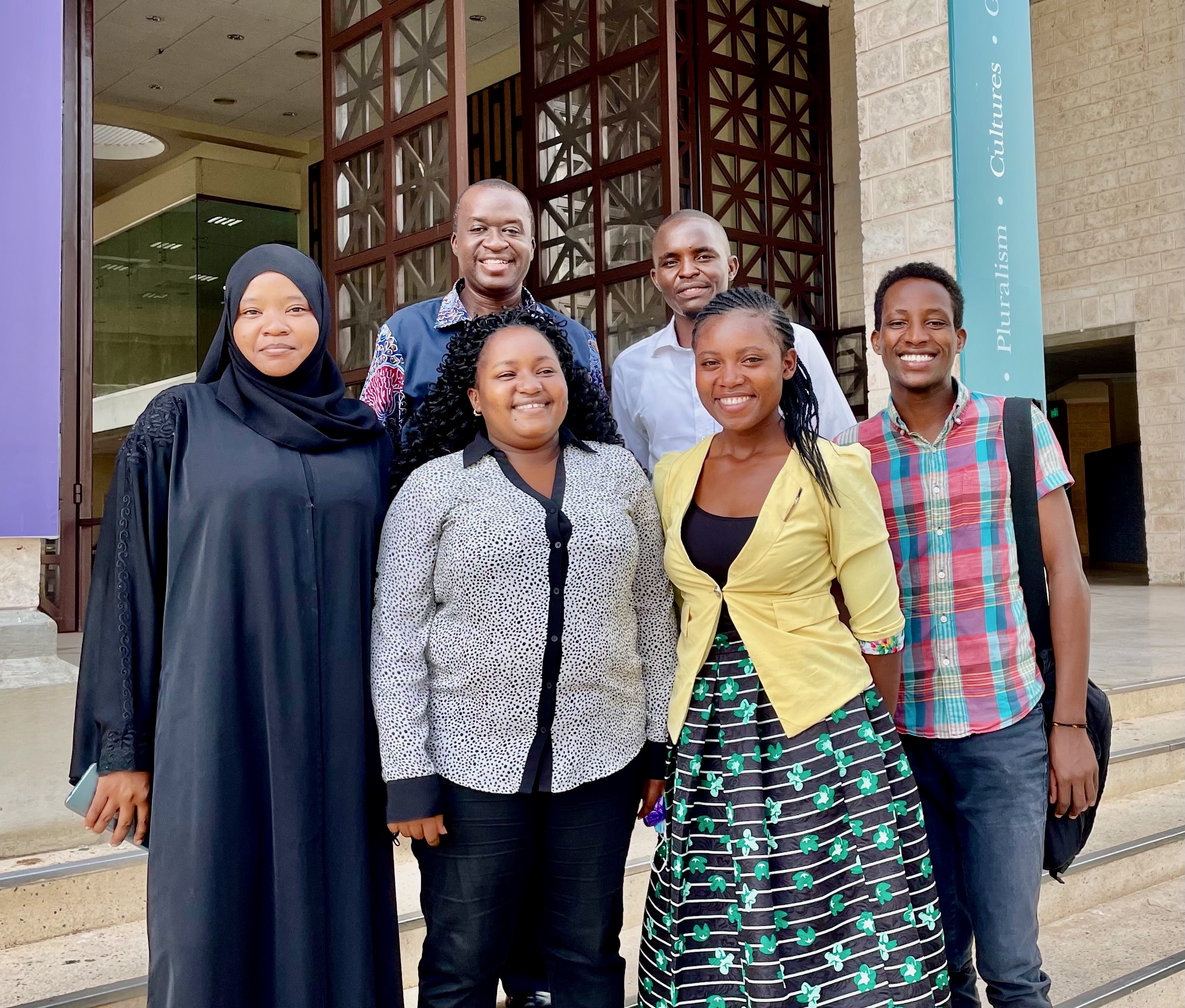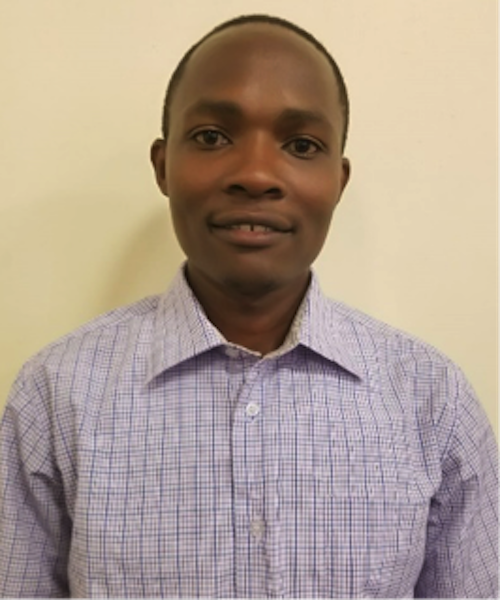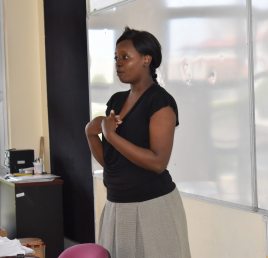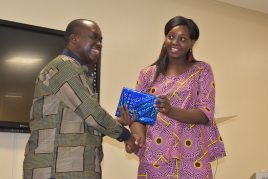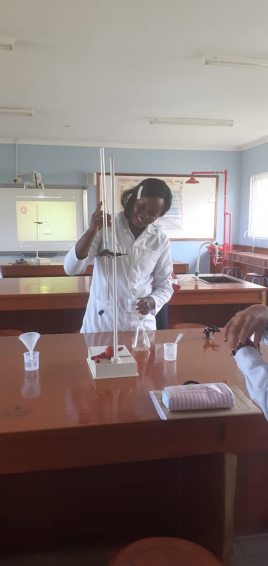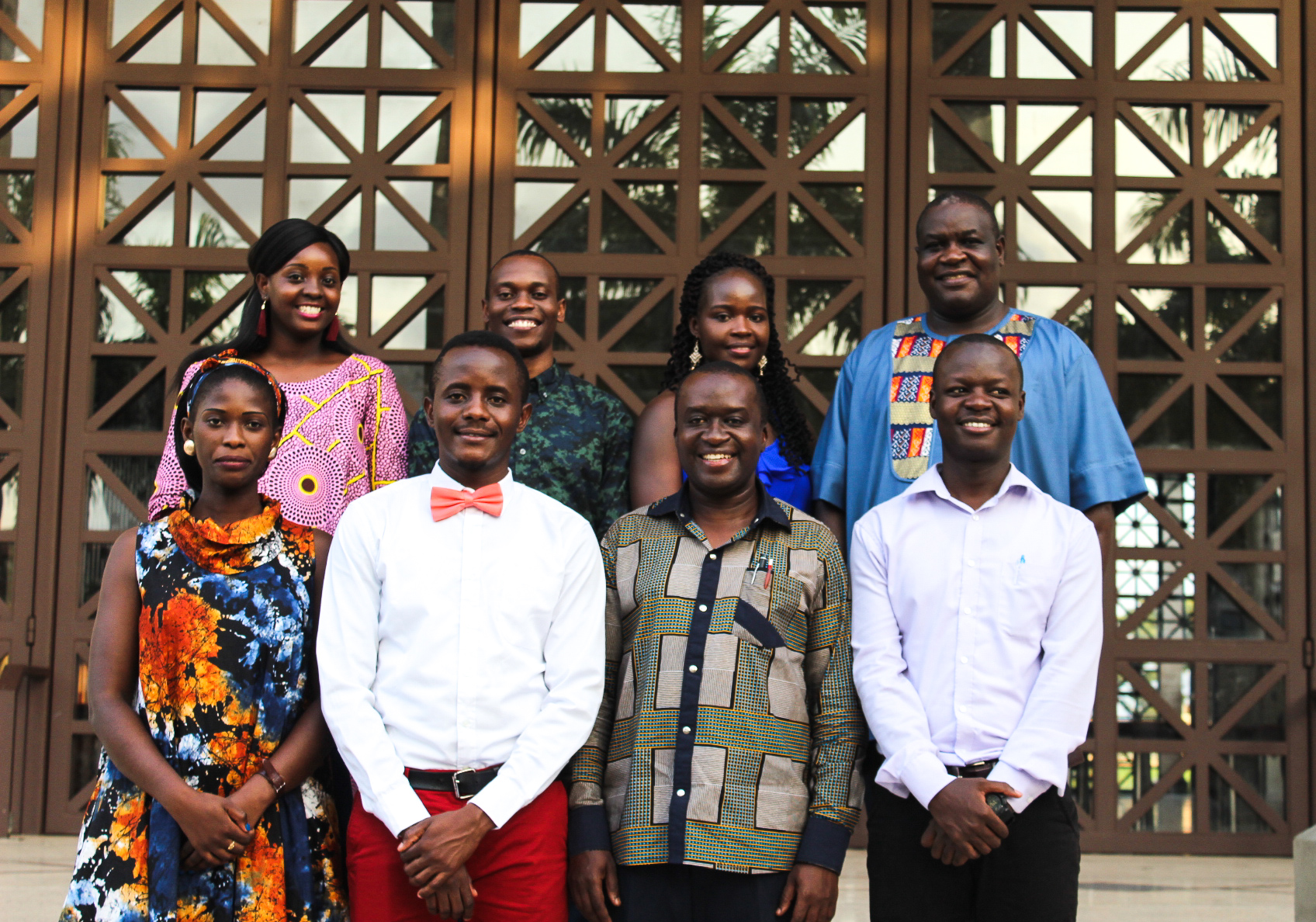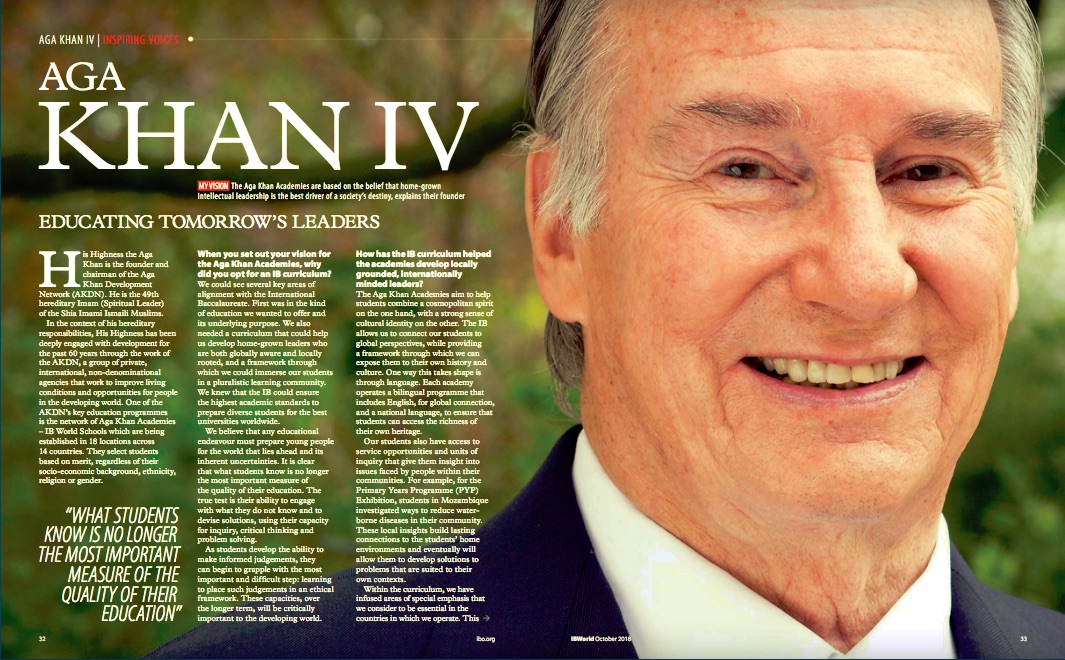Fiona Makena Kinyua: A transformed educator
“I was elated,” she says. “There were twenty graduates who made it to the final phase. I was one of them. It made me very happy because the TPP programme is very competitive.”
TPP, a multi-phase programme, was designed by the Academies to train outstanding graduates from public universities to teach one or more of the International Baccalaureate Programs (IB) schools. The initial component of the three-part programme, Choosing to Teach Institute was launched in Mombasa in 2013. This was followed by the other two components: Learning to Teach Internship and Teaching to Learn Residency. Today, the Programme is taught in all three academies.
The aim of TPP is to train teachers to become transformative educators in their communities with the vision, as the programme states, “to provide exceptionally talented and highly motivated Academies students with a rigorous academic and leadership-development experience.” The skills the trainees gain from completing any component of the programme are considered highly valuable, thus raising academic standards in the schools in which they teach.
Armed with a Bachelor’s degree in Education Science, Fiona completed the TPP training in June 2019, and currently teaches mathematics and chemistry at the Naisula School, Kajiado County in Kenya. Highly motivated and ambitious for her young students, Fiona says it is her training with TPP that drove her to change her education approach. Her instruction is now entirely student- centered, she states proudly. She has whole-heartedly embraced inquiry-based instruction to engage her students and uses the education concept of differentiation to tailor her lessons to meet individual needs.
Fiona Makena Kinyua with TPP Coordinator Tom Abuto“I thank the TPP fraternity for the opportunity to train as an International Baccalaureate teacher. My teaching methods have changed. I remember initially I had a challenge in facilitating an inquiry-based lesson. I am now happy that I do that with ease. I differentiate and engage students. I now reflect and ask students for feedback. I am open and welcoming to colleagues coming to my classes and giving me feedback.”This capacity-building endevour to improve the quality of education in local schools is clearly stated in the TPP mission statement which reads: “TPP seeks to develop teachers who are talented individuals with high professional expectations and aspirations; are creative and committed to their own life-long learning and self-improvement; and have a strong professional identity grounded in a well-articulated philosophy of teaching.”
The TPP’s curriculum makes a fundamental shift-from a focus on teaching to a focus on learning. It is designed to help teachers internalise the IB education philosophy.
“The TPP story is rich,” states curriculum coordinator, Tom Abuto, radiating pride and ambition for his students. He is quick to emphasise that only the topmost candidates are recruited into the rigorous and competitive full 18-month programme.
Fiona Makena KinyuaTPP is a model for a growing number of educators who believe that the programme is a much-needed engine for social change. The TPP is offered in partnership with University of British Columbia which provides programme quality assurance and external assessment of participants’ work.TPP is also the first school-based programme to be recognised by the IB Educator Certificate in Teaching and Learning and the only such programme on the African continent. In addition, the programme is currently seeking recognition from the Cambridge International Examinations under their scheme of Professional Development Qualifications. It is also working towards recognition from the Kenyan Teacher Service Commission.
TPP educators believe that the programme’s distinctive curriculum has the power to train teacher-leaders to motivate students to become agents of social change in their communities. The programme endeavors to produce teachers who are reflective, purposeful and committed to life-long learning.
Fiona feels the skills she has acquired through her training with TPP have transformed her for life. They have completely altered her beliefs and thinking. “My students are now more engaged and enthusiastic. Through differentiation I am also able to be equally inclusive to all students of differing capabilities.”
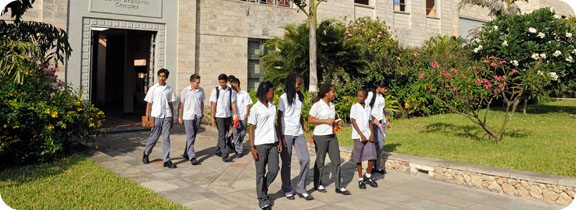
Introduction to the Aga Khan Academies
In 2000, His Highness the Aga Khan initiated the establishment of the Aga Khan Academies, an integrated network of schools to be located in countries across Africa, South and Central Asia, and the Middle East.
The aim of the Academies is to develop future leaders with the skills and knowledge to support positive development in their societies. The Academies achieve this by recruiting exceptional young people from all backgrounds and providing them with the highest international standard of education.
Admission is based upon merit, with financial aid available to ensure access for accepted students regardless of financial circumstances.
Global network
When complete, the network of Academies will form a global learning community of about 18 schools in 14 countries (view a map). They will eventually serve approximately 14,000 girls and boys of exceptional calibre, graduating 1,500 students annually.
The first Aga Khan Academy opened in Mombasa, Kenya in 2003, the second in Hyderabad, India in 2011 and the third in Maputo, Mozambique in 2013.
Rigorous academic programme
The academic programme offered by the Academies has been developed according to the principles of the widely-recognised International Baccalaureate (IB). The IB provides a challenging academic environment for students and allows their achievement to be measured against international standards.
In addition to providing a rigorous academic and leadership experience, the Academies help students develop an ethical and public-minded outlook through community service opportunities and education on ethics and pluralism.
“An education must equip students with the tools that enable them to adapt and thrive in a world characterised by change.”They also recognise that to become effective leaders, students must be both globally minded and locally rooted. Global as well as local perpectives are reflected in the curriculum, and students study in both English and the local language.
Purpose-built residential campuses
Each Aga Khan Academy campus is architect designed and purpose built. They feature state-of-the-art classrooms and resource areas, and extensive sports facilities.
The residences provide secure and well-supervised accommodation for local and international students as well as those visiting from another Academy. As the network develops further, both students and teachers will participate in visits and exchanges between Academies to broaden their experience and practical understanding of pluralism.
Professional development
Promoting excellence in teaching, both on campus and more broadly, is a major goal of the Academies. Each Academy is established as a Professional Development Centre (PDC). The PDC aims at strengthening the profession of teaching in the region by providing substantial professional learning opportunities and modelling highly effective educational practice.
Fatema Sheikh (Class of 2012): Advocating Educational Equality
Fatema Sheikh carries the lessons she learnt during her time at the Aga Khan Academy Mombasa with her to date.
Fatema joined the Aga Khan Academy Mombasa community in 2009 and graduated in 2012. She is currently pursuing a Bachelor of Science in consumer behaviour and marketing at the University of Reading on a full scholarship – an achievement for which she appreciates the support she received at the Academy through university counselling. She has had a colourful university career so far and hopes to graduate with her degree in the summer of 2015.
In the summer of 2013 after her first year at university, Fatema underwent a three-month internship with Champions Life Academy – an organisation which recruits and trains undergraduate students from universities to raise funds for various charities.
“This internship appealed to me, especially because it was related to my course of study as well as being able to support a worthwhile cause.”
She raised funds for a charity called Action for Blind People.
“This internship strengthened a lot of my skills, such as communication, negotiation and time management as well as improving my people skills tenfold. I am now able to approach and communicate with anybody.”
In addition to the work she did over the summer, Fatema was also heavily involved in various community activities through the university’s RED Award scheme.
Currently, she spends her time as a volunteer working with special needs children. Her desire to get involved with something like this was sparked during her time at the Academy in Mombasa. As part of her creativity, action, service (CAS) component of the Diploma Programme (DP), she spent time working with children in the special support unit of the Junior School, helping them with one-on-one or small group sessions on areas such as reading and comprehension.
“As difficult as it is, it is equally rewarding. When you get the child to enjoy what they are doing and play a part in helping them learn, it is very fulfilling.”
One situation she reflects on is her success in working with a student with several impairments, such as delayed speech, hearing impairment and a slight problem with balance.
“Helping and encouraging her made me feel like I was contributing to her understanding of various concepts," she says. "Working with children is always a two-way thing – they teach you as much as you teach them.”
In the past, she has also been involved in cultivating a garden at a school as well as volunteering at a family church in Reading during Christmas.
Fatema also places great worth on the advice she got from the Academy in preparation for university.
“My experience at the Academy could not have prepared me for life at university any better. While at the Academy, I was immersed in a diverse and multicultural environment which allowed me to adjust relatively easily to university where I was and still am constantly meeting people from different backgrounds.”
Having studied in this environment made her more open-minded and accepting of other people, and that has contributed to her being able to make friends and interact with people more easily. She also reflects on the value the International Baccalaureate (IB) DP added to her education.
“Deciding to do the IB DP is probably one of the smartest decisions I have made. I feel that the work ethic and skills such as time management required to do the programme have prepared me to take on any challenge.”
However, it was not just the academic component of the programme that pushed Fatema to stretch her limits. The DP's CAS component requires students to be actively involved in extra-curricular activities, and the theory of knowledge lessons encourages students to think critically in all disciplines. She commends both these aspects of the programme for instilling values in her that have become intrinsic to the way she lives her life.
“It made me into a more well-rounded and holistic individual,” she says. “It prepares you for life outside of school and makes you think about things that would not cross your mind or that you normally would not consider important. My ability to think and analyse situations critically has improved significantly due to constantly being challenged throughout the programme.”
Fatema has also been able to think about the time she has spent away from home and how her experience at the Academy prepared her for life in a new environment. The abundance of the AKA Mombasa alumni at the University of Reading was a part of that, and she was able to form connections quickly within the community. She also felt that the Academy offered education and opportunities just as good, if not better, than the schools in more developed places such as England, which made it very easy to transition into the unfamiliar environment.
“The Academy and the IB encourages independent thinking and this served me well since it was the first time I was living away from home for a long period and where I would have to make a lot of decisions on my own.”
A lot of Fatema’s involvement in her local community at university is inspired by the ethics she picked up at the Academy. One of the projects of which she is particularly proud is an outreach programme she conducted while interning for the Kenya School Improvement Project (KENSIP) as part of the Aga Khan Foundation internships offered to DP students at the Academy. She visited rural schools and worked with the adolescent girls there towards educating and counselling them on the day-to-day challenges faced. Initially, she focused on identifying the key issues to be tackled and then tried to come up with a way in which sensitive issues such as abuse, early pregnancy and the menstrual cycle could be approached.
“I formed a very close bond with the girls I worked with as well as their teachers. I truly felt like I helped to make a difference and taught them something worthwhile. Although I spent most of my time with the girls, I also included the boys and led forums which discussed issues such as bullying and drug abuse.”
As part of her outreach project, she worked to raise awareness in local rural communities about equal education opportunities for both boys and girls.
Fatema's commitment to providing education opportunities remains strong to this day. In particular, she feels passionate about eradicating gender inequality when it comes to education in rural parts of the world. Her work with KENSIP highlighted the need for equal education for boys and girls as the key to future development.
“It is only through education and knowledge that the current and future generations can flourish. I believe the key to breaking the poverty cycle is improving education opportunities. So, if I had all the resources at my disposal, I would advocate for the importance of the girl child being allowed to attend and stay in school.”
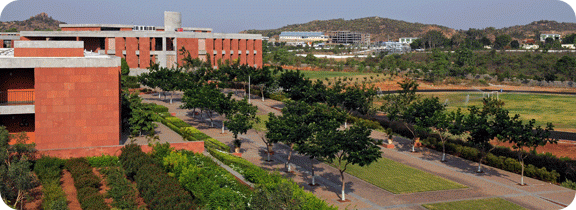
About the Academy
The Aga Khan Academy Hyderabad is an International Baccalaureate (IB) World School and is the second in the network of Aga Khan Academies established by His Highness the Aga Khan.
The Academy features state-of-the-art facilities, a multicultural student body, and an experienced team of educators and staff. We provide students with education of the highest standard in order to prepare them for lives characterised by leadership and service.
Admission to the Academy is competitive and based on student merit, regardless of a family’s ability to pay. We consider all eligible students regardless of socio-economic status.
Mission statement
The following is the mission statement of the Aga Khan Academy Hyderabad:
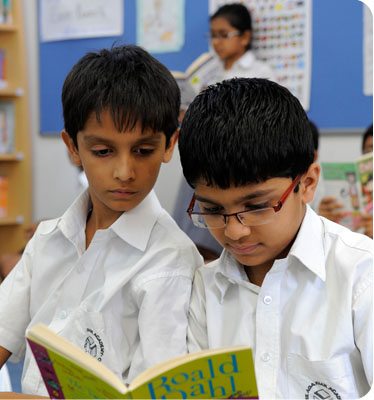 "The Academy will identify and nurture exceptional young people from any background with the potential to become effective, ethical leaders. It will be a joyful community of lifelong, fearless learners who are culturally-rooted and internationally-minded. Academy graduates will be reflective, compassionate, adventurous and creative citizens empowered as stewards to make a positive contribution in a changing world."
"The Academy will identify and nurture exceptional young people from any background with the potential to become effective, ethical leaders. It will be a joyful community of lifelong, fearless learners who are culturally-rooted and internationally-minded. Academy graduates will be reflective, compassionate, adventurous and creative citizens empowered as stewards to make a positive contribution in a changing world."
A culture of excellence
As with all the Aga Khan Academies, we are committed to excellence in all aspects of education. This commitment includes the academic curriculum as well as the campus where students live and learn.
Our campus is architect designed and purpose built. It features state-of-the-art classrooms and resource areas, and extensive sports facilities. These outstanding facilities provide an inspiring environment for both students and staff.
At the Academy, we strive to create a balance between academic demands, sports, cultural activities, and community life. We challenge our students to be intellectually inquisitive and socially conscious. We also encourage them to respect and appreciate other people’s cultures, social structures, values and beliefs.
A rigorous academic programme
Our academic programme has been developed through the implementation of the widely-recognised International Baccalaureate. The programme is designed to challenge students of all backgrounds.
Our aims for our students include:
- promoting academic excellence
- enhancing analytical and study skills
- building leadership skills
- fostering an ethical outlook and sense of civic responsibility
- developing an understanding of global issues
- encouraging creativity.
Experienced local and international teachers lead our programmes. Faculty members are up-to-date with the best educational practices. They are committed both to their students’ learning and to their own continuing professional development.
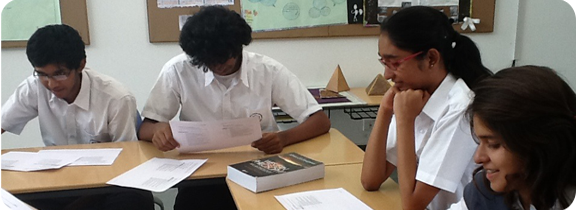
About the Academy
The Aga Khan Academy Dhaka is the fourth in the network of the Aga Khan Academies established by His Highness the Aga Khan.
The Academy features state-of-the-art facilities, a multicultural student body and an experienced team of educators and staff. We provide students with education of the highest standard in order to prepare them for lives characterised by leadership and service.
Admission to the Academy is competitive and based on student merit.
Mission statement
The following is the mission statement of the Aga Khan Academy Dhaka:
 "The Academy will identify and nurture exceptional young people from any background with the potential to become effective, ethical leaders. It will be a joyful community of lifelong, fearless learners who are culturally-rooted and internationally-minded. Academy graduates will be reflective, compassionate, adventurous and creative citizens empowered as stewards to make a positive contribution in a changing world."
"The Academy will identify and nurture exceptional young people from any background with the potential to become effective, ethical leaders. It will be a joyful community of lifelong, fearless learners who are culturally-rooted and internationally-minded. Academy graduates will be reflective, compassionate, adventurous and creative citizens empowered as stewards to make a positive contribution in a changing world."
A culture of excellence
As with all the Aga Khan Academies, we are committed to excellence in all aspects of education. This commitment includes the academic curriculum as well as the campus where students live and learn.
Our campus is architect designed and purpose-built. It features state-of-the-art classrooms and resource areas, and extensive sports facilities. These outstanding facilities provide an inspiring environment for both students and staff.
At the Academy, we strive to create a balance between academic demands, sports, cultural activities, and community life. We challenge our students to be intellectually inquisitive and socially conscious. We also encourage them to respect and appreciate other people’s cultures, social structures, values and beliefs.
A rigorous academic programme
The network of Aga Khan Academies has developed its academic programme in line with the widely-recognised International Baccalaureate.
Following in the footsteps of its sister schools in Mombasa, Hyderabad and Maputo, the Aga Khan Academy Dhaka is pursuing authorisation as an IB World School.
The programme is designed to challenge students of all backgrounds.
Our aims for our students include:
- promoting academic excellence
- enhancing analytical and study skills
- building leadership skills
- fostering an ethical outlook and sense of civic responsibility
- developing an understanding of local context and global issues
- encouraging creativity.
Experienced local and international teachers lead our programmes. Faculty members are up-to-date with the best educational practices. They are committed both to their students’ learning and to their own continuing professional development.
